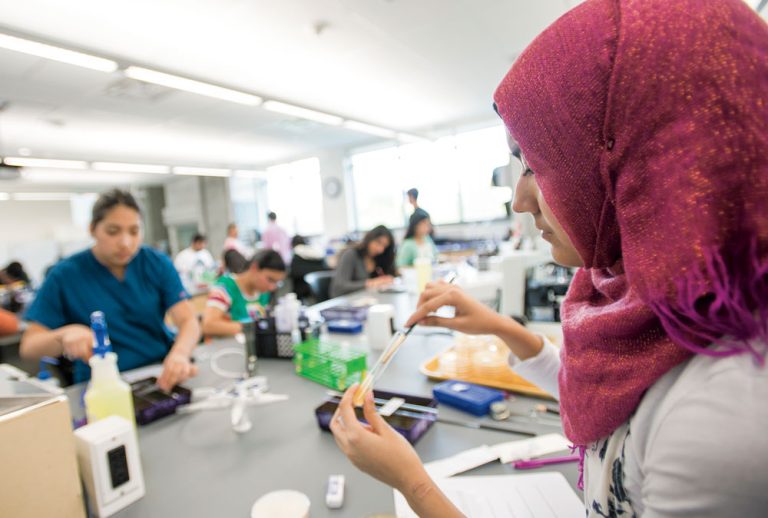Northern Virginia Brings New Meaning to Life Science
Research institutions and entrepreneurial resources breed breakthroughs in the region's life sciences industry

Located in the heart of the booming Mid-Atlantic BioHealth Capital Region, Northern Virginia has earned a reputation as a life sciences powerhouse and a place where innovative companies can thrive.
Among the region’s advantages are a highly skilled workforce, an ecosystem of well-established and forward-thinking life sciences brands, and a roster of top-tier research institutions that continuously supply the intellectual property required for commercialization of ideas and expansion of the industry.
The region also offers access to large health care providers, such as Children’s National Medical Center, Novant Health UVA Health System, Sentara Northern Virginia Medical Center, Kaiser Permanente and the Inova Center for Personalized Health (ICPH), which help grow the life sciences industry through research partnerships and new discoveries.
Accelerating Advancements
The ICPH focuses on advancing clinically relevant technology that will improve patient outcomes, reduce the cost of health care and expand services that contribute to individual wellness, says Pete Jobse, managing director of Inova Personalized Health Accelerator.
“This focus distinguishes Inova as a leader in the application of innovation for the next generation of health services,” Jobse says. “By assuming this leadership position, ICPH’s research and equity investment programs create new companies and health services industry components in Northern Virginia. This activity raises the region’s national profile and contributes to a cycle of attraction, creation and development of companies that constitute a life sciences industry cluster.”
The Inova Personalized Health Accelerator, part of ICPH, provides executive mentoring, customized business planning and connections to customers for health care technology and services entrepreneurs. It also helps connect startups to early stage capital. Jobse says access to grant funding from universities, including George Mason, Virginia Tech and the University of Virginia, as well as from federal government agencies such as the National Institutes of Health, National Science Foundation and Food and Drug Administration is a major advantage for fledgling companies.
Just as important as that financial support, he says, is the transfer of knowledge and talent, as well as education and guidance for the commercialization process and patent portfolio development.
“The value of being in the shadow of the nation’s capital, with proximity to federal research and scientific activities, as well as policymakers, cannot be overstated,” he says.
These agencies successfully attract the top scientists in their discipline for appointments, research and regulatory activities, Jobse notes, and at the conclusion of their work, many of these individuals transition to positions at health systems, venture capital firms, universities and bioscience companies.”
“This transfer of knowledge regarding federal priorities and research interests helps those organizations to be effective competitors in the biosciences market,” he says. “This proximity positions us to serve as a resource to share successes and lessons learned with elected and administration leaders as they make policy and funding decisions with respect to life sciences and biohealth.”
At the Howard Hughes Medical Institute’s Janelia Research Campus in Ashburn, scientists pursue biology’s most challenging problems in a uniquely innovative and collaborative atmosphere.
Its support teams offer expertise and state-of-the-art equipment and facilities that complement and extend work being done in individual research labs.
One of the fastest-growing life sciences clusters in Northern Virginia is Prince William County — home to the George Mason University Science and Technology Campus and the Prince William Science Accelerator, a 9,126-square-foot facility that offers access to wet labs, conference space and technical assistance to help tenants rapidly commercialize their intellectual property.
The Science Accelerator also serves as a “soft landing” for George Mason University translational research, says Ginny Person, communications, marketing and research manager for the Prince William County Department of Economic Development. Person says many of the university’s professors and researchers work with the accelerator’s Office of Technology Transfer to file patents and license the IP to commercialization teams.
“For example, former Accelerator tenant Ceres Nanosciences was a direct spin-out of the university’s Institute for Advanced Biomedical Research. Ceres Nanosciences now employs close to 15 scientists at its own 9,000-square-foot lab in Prince William County. In addition, Virongy LLC spun out of Mason’s National Center for Biodefense and Infectious Diseases, and it now employs six scientists at the accelerator,” Person says.
